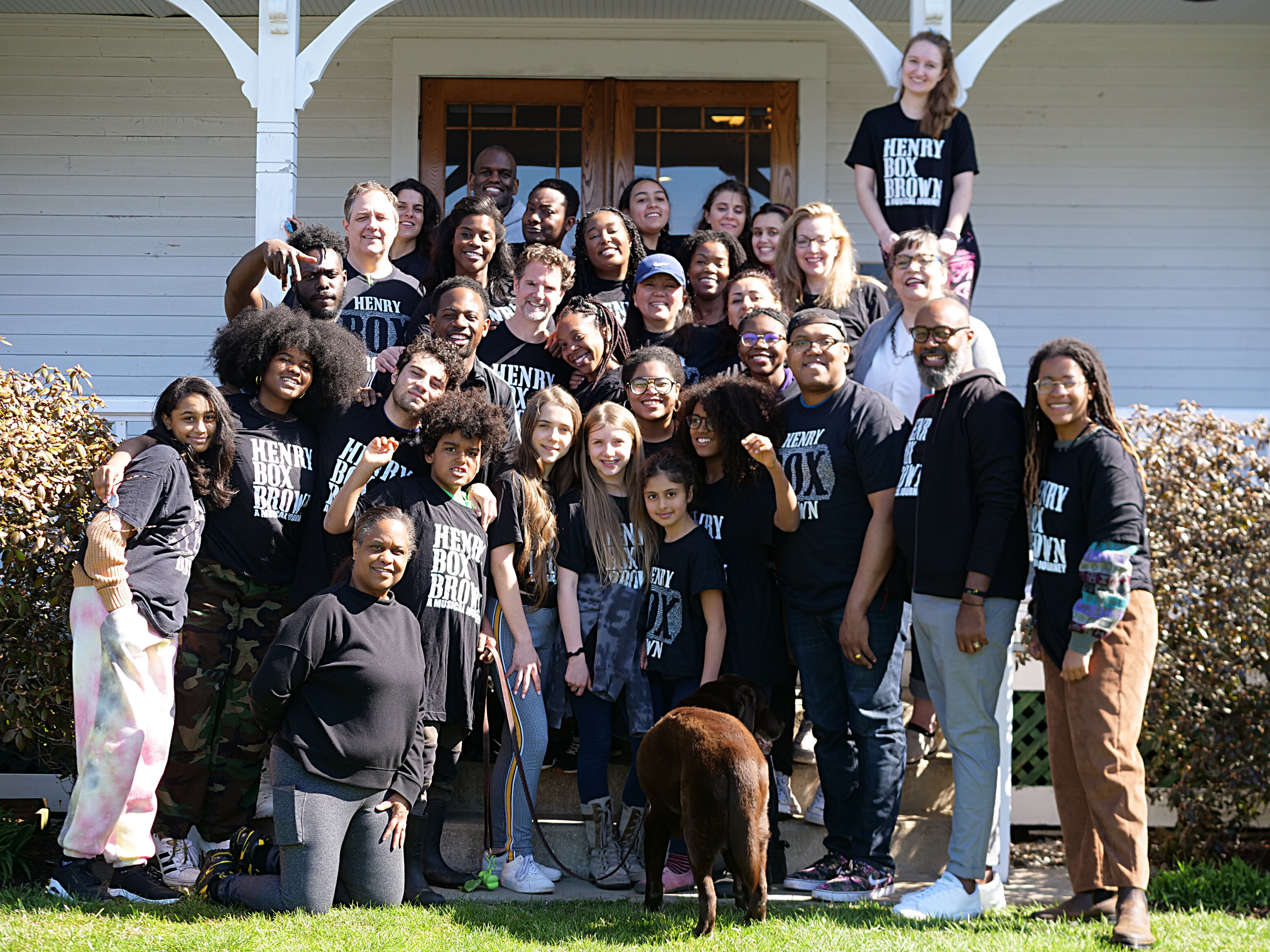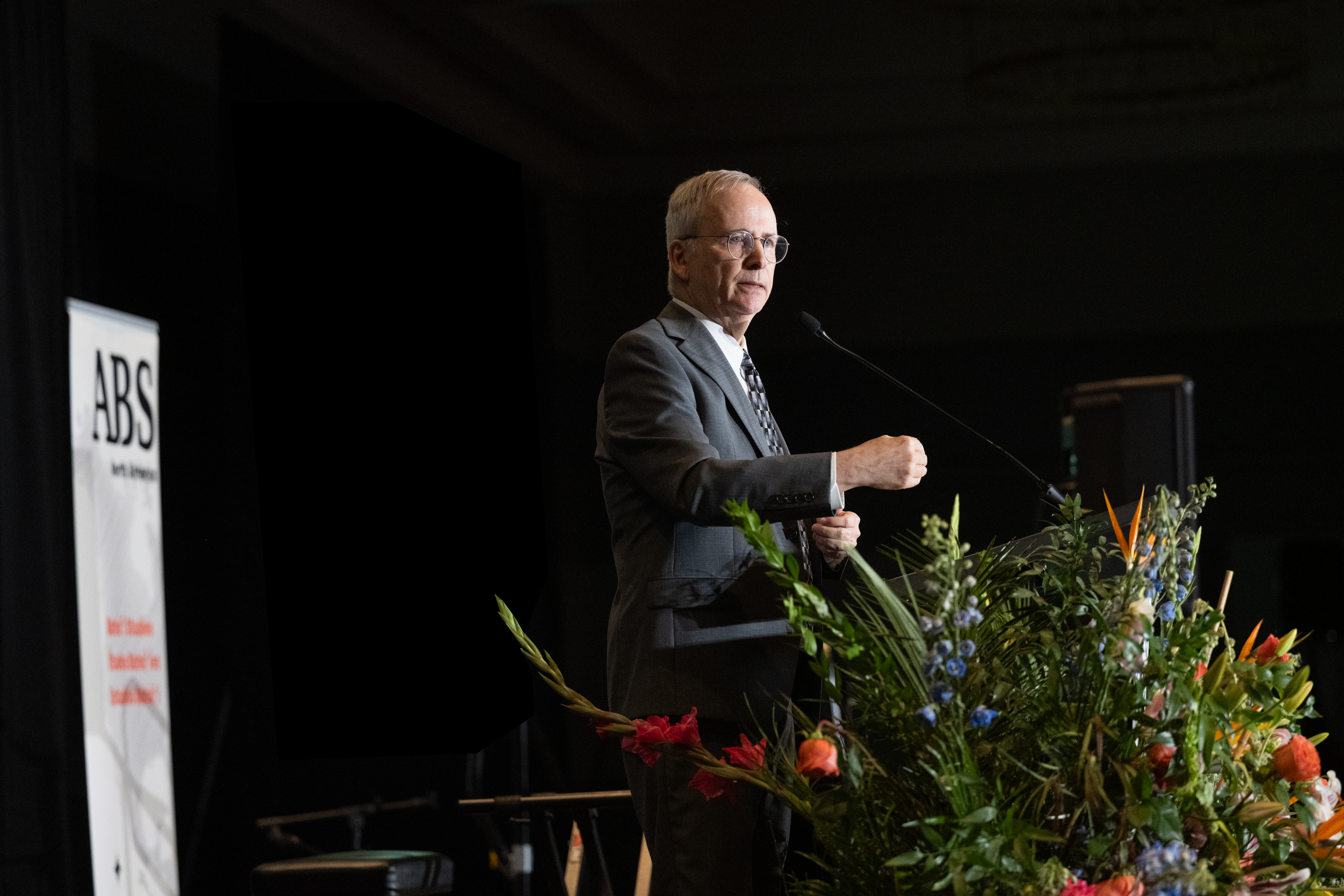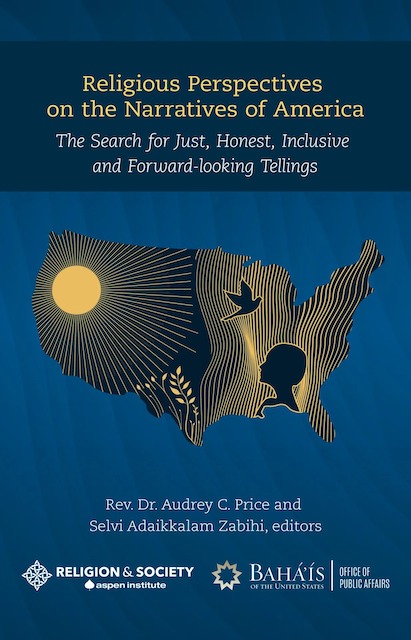
Social justice focus infuses art programs at Maine learning center
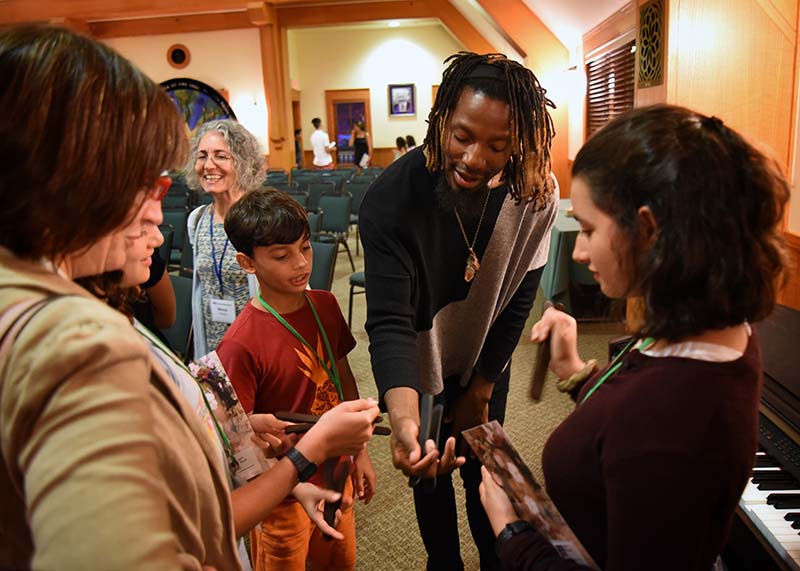
With a sharpening focus on social justice and outreach to neighbors and artists, public art programs at Green Acre Baha’i School in Eliot, Maine, are attracting more people to vital conversations.
Over the past year, art shows on facets of the theme “Exploring Justice Through Beauty” have brought collections of artworks into display spaces and hallways at this national Baha’i center of learning. The most recent shows explored “Afrofuturism” and “Inherited Beauty.”
And public events celebrating their openings and closings have attracted artists, musicians, poets and more to share their expressions of beauty, justice and nobility with the Eliot and Green Acre communities. New connections and sometimes friendships have flowed from these events.
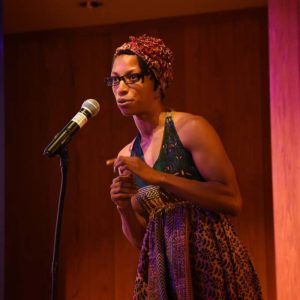
For instance, spoken-word poet Kayla Lewis of Manchester, New Hampshire, followed her recitation at the opening of “Inherited Beauty” by attending part of a summer school session that dealt with eliminating racial prejudice. “I love what you guys are doing up there and definitely want to be a part of it,” she wrote afterward.
And in a powerful process of sharing, Portland, Maine, pianist Kafari played piano with other Baha’is. He stayed late after his performance, showed children how to play a percussion instrument called the bones, and attended an evening presentation by youth and junior youth that “really blew me away.” He later said, “I have never been received in that way where I felt the whole audience could be my friend.”
These events are part of a continuing drive to learn about using the arts to stimulate discourse meaningful to the populations Green Acre serves. This effort got started in 2017, and its early results included a show on “Arts and the Spirit — Expressions of Devotion” and another on the 200th anniversary of the birth of Baha’u’llah, prophet-founder of the Baha’i Faith.
Basic to these efforts is a vein of artistic passion among Green Acre staff members and volunteers. Its art committee draws on a legacy stretching back to the 19th-century establishment of Green Acre, even before the center was associated with the Baha’i community.
“One of the most important discoveries I made upon arriving in Eliot is the history that [founder] Sarah Farmer had with bringing the arts to this small but forward-thinking community,” says Edward Phillips, assistant facilities manager and a member of the art committee. “She invited poets, actors, painters, and very creative people that wanted to think for themselves and investigate truths.”
The “Afrofuturism” show in February was a “turning point” for this enterprise, says Dave Walters, facilities manager and also a committee member. Inviting artists and participants to “imagine a vision of the future in which people of the African diaspora not only have a place in, but are synonymous with, the progress and advancement of the human race,” it was the first show to draw significant participation from outside the enrolled Baha’i community. It closed with a jazz concert featuring Baha’i musician Mtali Banda and the Oneness Project, which Walters says was “very emotional and uplifting.”
He notes, “To relate Afrofuturism to the Baha’i principle of the oneness of mankind and to educate ourselves on the issues involved, we hosted a series of discussions leading up to the opening. These were well attended and created a lot of interest in the community.”
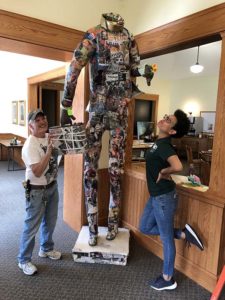
The process grew with the “Inherited Beauty” show this summer, the largest to date. It centered on “the gifts of our ancestors: inherited love, inherited nobility, creativity, culture, belief, and humanity,” according to Claudia Maturell, community outreach coordinator, also with the committee.
Frank Robinson, operations manager and another art committee member, says these universal concepts “seem to be themes people are longing for even if they may be unsure how to articulate it. Displaying those themes artistically connects immediately to the heart in a way a lecture cannot. The arts open the door for the hearts to further connect and that feeling was palpable on opening night.”
In addition to musical performances, the July 6 program for the opening included an original video and a poetry slam. Two of the artists “returned to host spontaneous youth workshops during the week. This was not planned and is an example of how the spirit of the event moved everyone who was there,” Walters says.
The next planned art show, following the thread of “Exploring Justice Through Beauty,” will center on the bicentenary of the birth of the Bab, Baha’u’llah’s herald, in late October.


